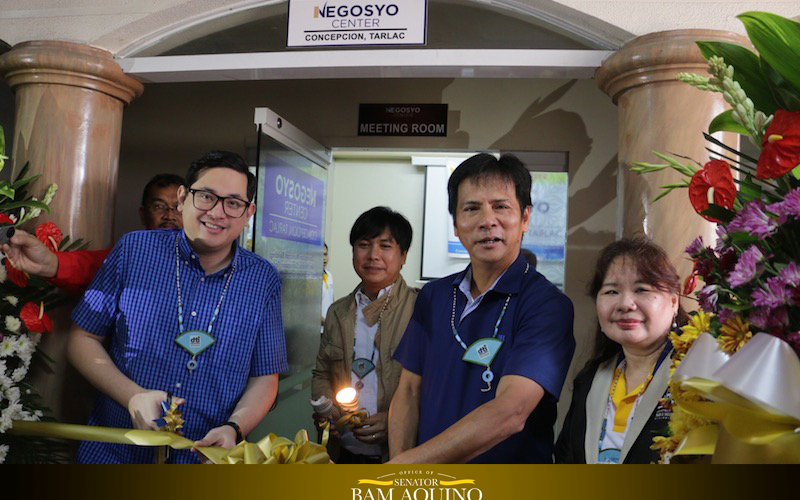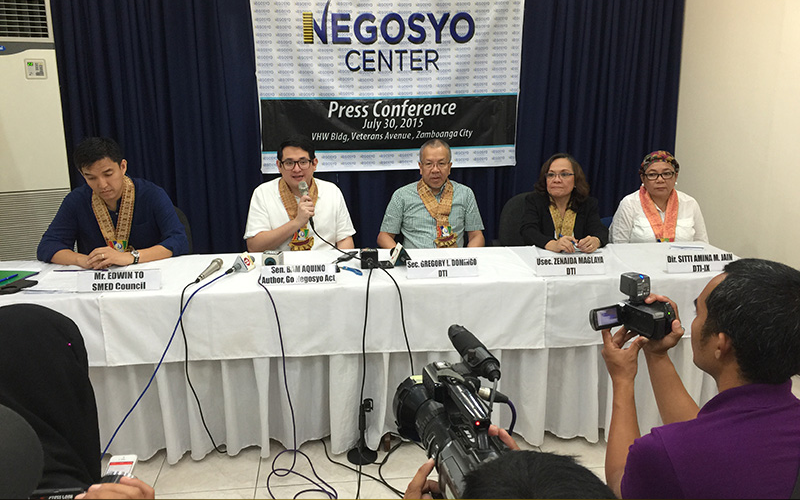Sen. Bam to unemployed Filipinos: Negosyo Centers can help you
Sen. Bam Aquino urged unemployed Filipinos to visit the closest Negosyo Center so they can get help in starting a business.
“Habang wala kayong nahahanap na trabaho, bakit di muna subukang magnegosyo. Hindi dapat matakot dahil naririyan ang mahigit 500 Negosyo Centers sa iba’t ibang bahagi ng bansa para kayo’y tulungan,” said Sen. Bam.
According to Sen. Bam, the Negosyo Centers have served around 800,000 Filipinos, from retired overseas Filipino workers (OFWS) to plain housewives, giving them the means to supplement their household income through business.
“Sa ngayon, marami nang mga Pilipino ang kumikita sa simpleng negosyo dahil sa tulong ng Negosyo Center,” said Sen. Bam, who has met with some of these successful entrepreneurs during his Negosyo Center visits.
Sen. Bam was the principal author and sponsor of the Republic Act No. 10644 or the Go Negosyo Act during his term as chairman of the Committee on Trade, Commerce and Entrepreneurship. It was the first of 17 laws passed by Sen. Bam in the 16th Congress.
The Go Negosyo Act mandates the establishment of Negosyo Centers in all municipalities, cities and provinces that will assist micro, small and medium enterprises in the country.
The Negosyo Center will provide access to markets and financing for businesses, training programs, and a simplified business registration process, thus helping ease of doing business and fast-track government processes in putting up a business.


Recent Comments